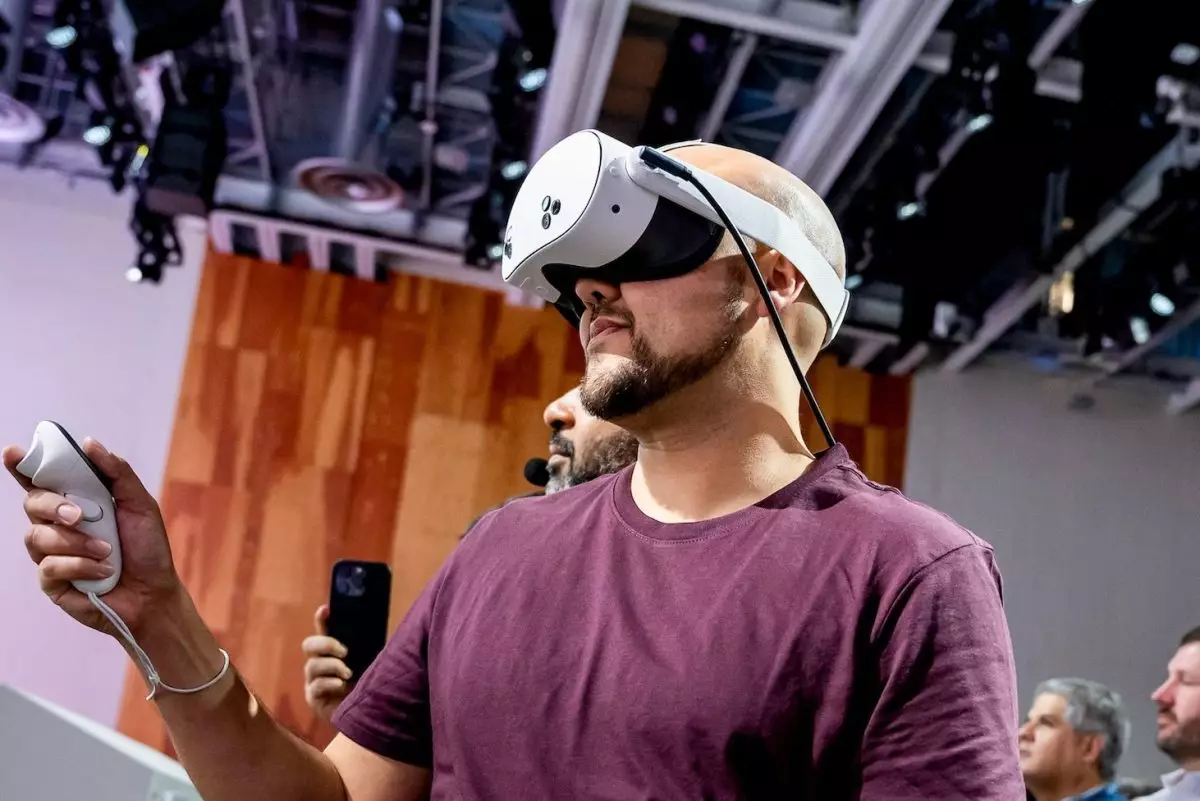In an ambitious attempt to solidify virtual reality (VR) in the educational framework, Meta has initiated a strategic collaboration with a selection of universities across the United States and the United Kingdom. This collaboration, referred to as the Meta for Education beta program, aims to collect insights into an innovative product that Meta hopes will enhance the mainstream acceptance of VR technology. By partnering with 13 esteemed educational institutions, Meta is signaling a fervent commitment to transforming the learning experience and making it more interactive and captivating.
The partnership’s core objective is to facilitate the discovery of engaging educational content across a diverse array of subjects, which include pivotal fields like science, medicine, history, and language arts. This transition into VR and mixed reality (XR) technologies stands to revolutionize how educators present information and how students absorb and interact with that information. With universities actively participating in testing these VR prototypes, Meta is laying the groundwork for a comprehensive educational platform that emphasizes immersive learning.
The selection of universities involved in this initiative includes Arizona State University, Houston Community College, and the University of Michigan, among others. Each institution will serve as a vital testing ground for emerging VR technologies in real classroom settings. Notably, the initiative is not limited to American institutions; European universities such as the University of Leeds and the University of the Basque Country are also included in the beta program, showcasing a commitment to an international educational transformation.
As part of the early implementation, classrooms at the University of Leeds have already begun offering immersive learning experiences. Specifically focused on the performance and theater disciplines, these classes will provide a foundation for more expansive uses of VR in educational frameworks. Similarly, the University of the Basque Country is slated to introduce VR into their physiotherapy and anatomy programs, demonstrating the technology’s potential across diverse academic fields.
Moreover, Meta is making strides in what they term the “metaversity” model, which aims to create virtual campuses that offer experiences reflective of real-world universities. This concept evolves beyond mere virtual classrooms; it implies a fully-fledged digital educational environment where students can interact, collaborate, and engage as they would on a physical campus. The expansion of this model into European institutions underscores Meta’s vision of a globally interconnected educational landscape that leverages VR technologies.
The impetus behind these initiatives is clear: Meta seeks to position itself at the forefront of the VR educational space, especially in light of recent developments in the immersive technology market. The company has generated attention with previous announcements regarding its Quest headset and educational tools intended to enhance the experience for educational institutions, which could revolutionize the manner in which education is delivered.
Despite these ambitious endeavors, it is necessary to scrutinize the financial implications of Meta’s ongoing investment in VR technology. The company is currently encountering significant financial challenges as it continues to pour resources into its Reality Labs division, which handles its VR and augmented reality (AR) projects. Recent financial reports revealed a staggering $4.4 billion loss in Q3, a figure anticipated to escalate as Meta persists in its quest for VR innovation.
Additionally, the landscape is becoming increasingly competitive, especially with tech giants like Apple entering the immersive headset market with formidable products such as the Vision Pro. This development may serve as a crucial turning point, inspiring broader acceptance and application of VR and AR technologies within educational frameworks. The prospect of a plethora of options for institutions could expedite the adoption of these technologies in traditional learning environments.
As Meta embarks on this extensive partnership with universities, the stakes for the educational ecosystem are higher than ever. The implications of successfully integrating VR into the classrooms could redefine pedagogical strategies, engaging students in unprecedented ways. However, while Meta’s vision is commendable, the financial viability and competitive landscape present considerable challenges that must be navigated carefully. The success of this beta program could very well be the harbinger of a new era in education, one that intertwines technology and learning harmoniously, paving the way for a future that is not just envisioned but realized.

